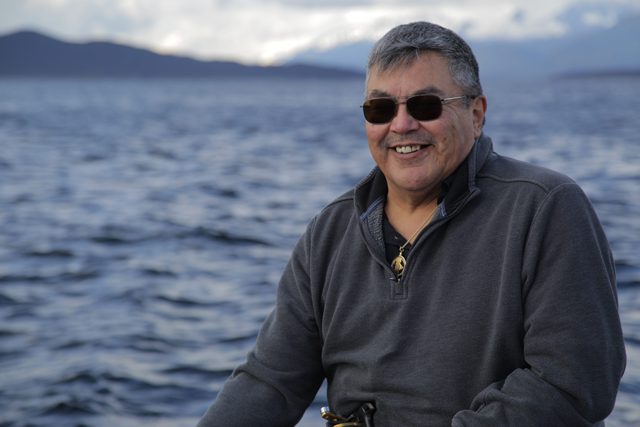Wilson Nicklie Jr., 54, and his four siblings grew up in the small fishing community of Petersburg, Alaska. They were raised by their grandparents, who adopted the children after Nicklie’s father died and his mother decided she couldn’t care for them. He spent his childhood at the docks or out on fishing boats, and attended The Salvation Army regularly with his grandmother, even being enrolled as a junior soldier. However, when he was just 12 years old, he had his first taste of alcohol, by 14 he was drinking regularly with his brothers, and by the age of 18 he says his alcoholism “took off.”
Nicklie became a commercial fisherman, a grueling and dangerous profession where he was expected to work for days at a time with little to no sleep. He later became a contract underground miner, moving from job to job around the Western United States and Mexico for the next 20 years.
“You work hard; you play hard,” he said. “To see a good family in the mining community was unusual. Commerical fishing [was] the same way. It was a lifestyle that was mostly for single men. A lot of drinking; a lot of drugs…. It was just a really dysfunctional lifestyle.”
Nicklie attempted to quit drinking on his own several times, but the stress of his occupation always led him back to alcohol. “I said to myself, ‘I deserve this. I worked hard all my life. I can do whatever I want,’” he said. “And so that … was the vicious cycle.”
On the morning of Dec. 11, 2011, Nicklie, who was homeless and sleeping on his brother’s couch, hit rock bottom. He asked his brother for a ride to the emergency room so he could begin a rehabilitation program. After living more than 30 years as an alcoholic, Nicklie said, “What pushed me over was I remember the peacefulness growing up, going to church, waking up and you know I can hear the birds. And life was great, you know, as a kid. And I compared it to the anxiety [of life as an alcoholic].”
After he had been sober for about a year, Nicklie felt a desire to return to church. He tried The Salvation Army Juneau Corps and said, “I felt that’s where I needed to be.” Now a senior soldier and welcome sergeant at the corps, Nicklie also found work at Polaris House, a clubhouse that assists people with histories of mental illness by teaching them practical skills and helping develop their sense of self-worth.
Nicklie describes his sobriety as a “work in progress,” though he has reached a point where he doesn’t think about drinking anymore. He is also eager to share his experience and his faith with others.
“Everywhere he goes he talks about his recovery and being a soldier and the Lord, and so it’s changed his life and he in turn is changing other people’s lives,” said Corps Officer Lieutenant Dana Walters.
These days, Nicklie said, “I wake up so happy. I’m not drunk. I’m not shaking. I’m not in that despair. I’m no longer living in the dark side. I just wake up so happy regardless of how the day is going to be. If it’s raining out, I’m still happy. It’s overwhelming when I wake up. I love the changes that I chose, the new life.”










